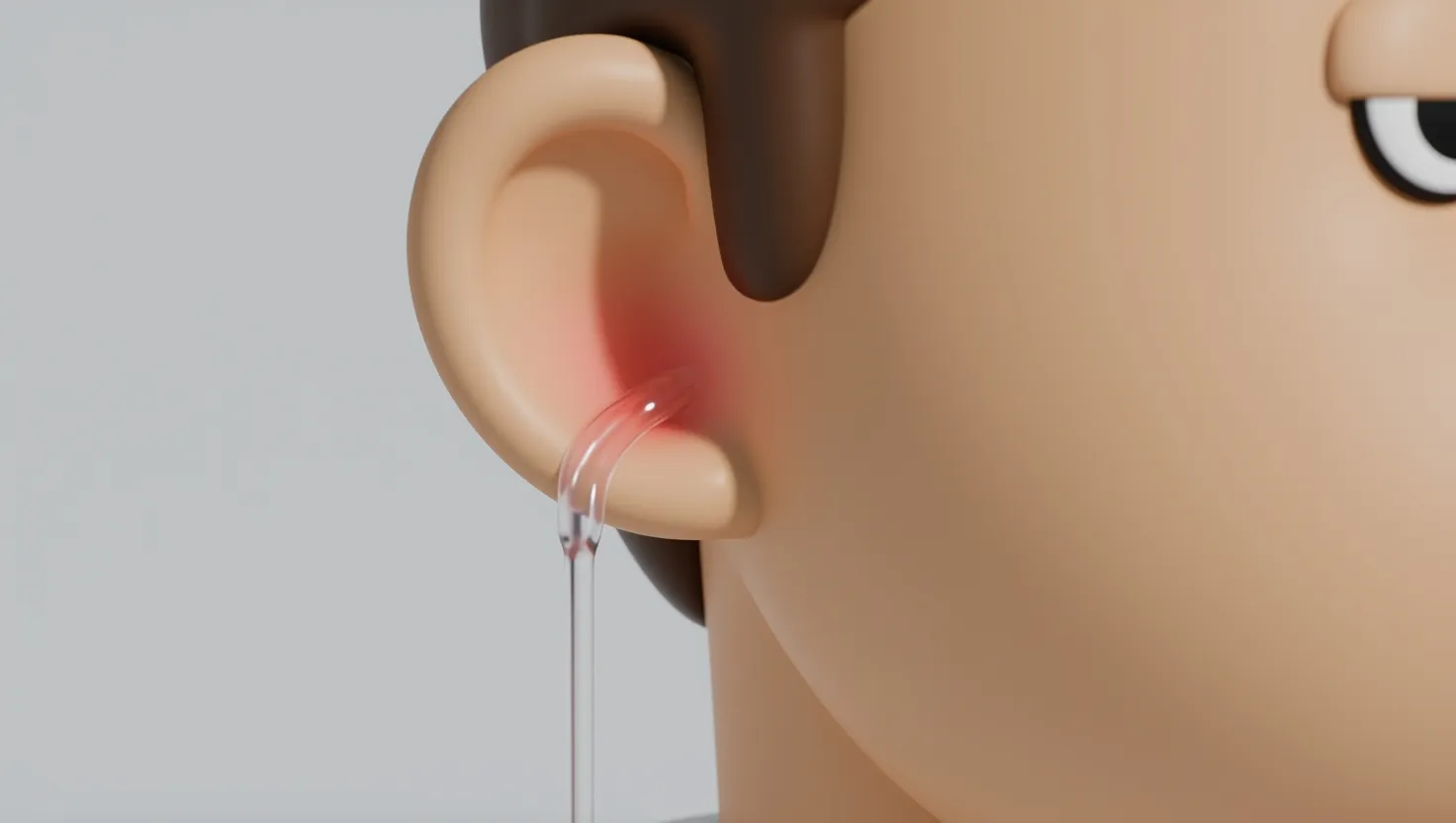What Is Fluid Leaking from My Ear?
Fluid leaking from the ear can be an unsettling experience that raises immediate concern. It generally refers to any type of liquid—whether clear, cloudy, pus-filled, or bloody—coming out of the ear canal. This symptom can occur for a variety of reasons and often signals that something may be affecting the ear’s health or its surrounding structures. Understanding what that fluid might mean and knowing when to seek care can help manage the situation effectively.
What Does Fluid Leaking from the Ear Mean?
When fluid drains from the ear, it usually indicates irritation, infection, or damage somewhere along the delicate structures of the ear canal, middle ear, or eardrum. The consistency and color of the fluid often provide clues about the underlying cause. For example, clear fluid might be normal earwax mixed with trapped moisture, whereas thick or foul-smelling discharge can indicate infection. Sometimes fluid leakage accompanies other symptoms such as itching, discomfort, a feeling of fullness, or even changes in hearing.
Common Causes of Fluid Leaking from the Ear
There are several common reasons why fluid might leak from the ear, ranging from minor irritation to more significant infections or injuries:
- Ear Infections: Middle ear infections can cause fluid buildup behind the eardrum that occasionally drains out if the eardrum ruptures. Outer ear infections often produce pus or watery discharge as the skin lining the ear canal becomes inflamed and infected.
- Ear Injury: Trauma to the ear, such as a blow to the head, sudden loud noise, or inserting objects like cotton swabs too deeply, can cause a punctured or torn eardrum. This injury leads to leakage of clear fluid or sometimes bloody discharge.
- Earwax Buildup: While earwax usually protects the ear canal, excessive buildup can trap moisture behind it. This moisture may seep out as clear fluid, especially if the earwax is impacted or if the ear canal skin is irritated.
- Allergies or Sinus Infections: Allergic reactions or sinus infections increase mucus production in connected passages. This mucus can drain into the ear canal through the Eustachian tube, causing a sensation of fluid and sometimes actual leakage.
- Cholesteatoma: This is an abnormal skin growth in the middle ear, often resulting from repeated infections or eardrum damage. It can slowly enlarge and cause persistent, foul-smelling discharge.
- Foreign Objects: Especially common in children, objects like small toys or beads may get stuck in the ear canal, irritating it and leading to secondary infection and fluid leakage.
- Other Benign Causes: Minor skin irritations, eczema, or allergic reactions affecting the ear canal can sometimes cause fluid leakage. In such cases, the fluid may be clear and less concerning but still uncomfortable.
When to Consider Seeing a Doctor
While fluid leaking from the ear isn’t always serious and sometimes resolves on its own, certain signs mean it’s important to seek medical attention promptly. Consider making an appointment if any of the following occur:
- The fluid is pus-like, bloody, or has a foul odor.
- There is accompanying pain, swelling, or redness around the ear.
- Hearing loss, dizziness, or ringing in the ears (tinnitus) occur.
- The fluid leak persists longer than a few days despite basic care.
- A fever develops along with the ear discharge.
- There is a history of ear surgery, chronic ear infections, or immunocompromise.
Early medical evaluation can help prevent complications such as chronic infection, hearing damage, or spread of infection to nearby structures.
How Fluid Leaking from the Ear May Impact Daily Life
Living with fluid leaking from the ear can be more than just physically uncomfortable—it can also affect many aspects of daily functioning:
- Work Difficulties: Ear discomfort or hearing changes may reduce the ability to focus or perform tasks effectively, especially in environments requiring clear hearing.
- Social Situations: Concerns about visible drainage, unpleasant odors, or hearing impairment may cause embarrassment or social withdrawal.
- Sleep Disruption: Ear pain or the sensation of fluid in the ear often makes it difficult to fall asleep or stay asleep, leading to fatigue and irritability during the day.
- Overall Quality of Life: Persistent or recurrent ear discharge can increase stress and anxiety and reduce participation in social and physical activities.
Addressing the underlying cause with appropriate care can alleviate these burdens and restore comfort.
Relevant Data and Research
Middle ear infections affect approximately 5-10% of children annually in the United States, making this one of the most common pediatric infections worldwide. Although less frequent in adults, ear infections remain a significant health issue, particularly among populations exposed to swim-related water exposure or allergy triggers.
Research shows that timely treatment of ear infections, including appropriate antibiotics or ear drops, significantly reduces the risk of complications such as chronic drainage, hearing loss, and the development of cholesteatoma. One longitudinal study found that children receiving prompt care were 40% less likely to experience lasting hearing impairment compared to those with delayed treatment.
Understanding the signs, symptoms, and when to seek care can improve outcomes and comfort for anyone experiencing ear fluid leakage.
---
Ready to address your ear concerns? Schedule a visit at Sleep and Sinus Centers today—either online or by calling (678) 689-1100. Specialists are available to provide thorough evaluation and personalized care.
This article is for educational purposes only and is not medical advice. Please consult a qualified healthcare provider for diagnosis and treatment.
Don’t let allergies slow you down. Schedule a comprehensive ENT and allergy evaluation at Sleep and Sinus Centers of Georgia. We’re here to find your triggers and guide you toward lasting relief.








